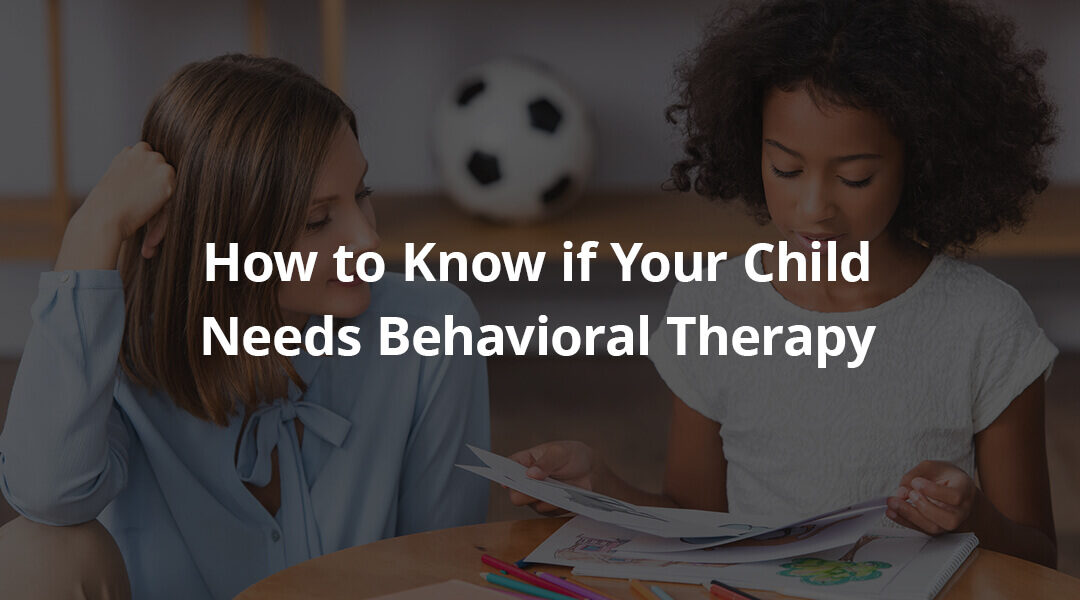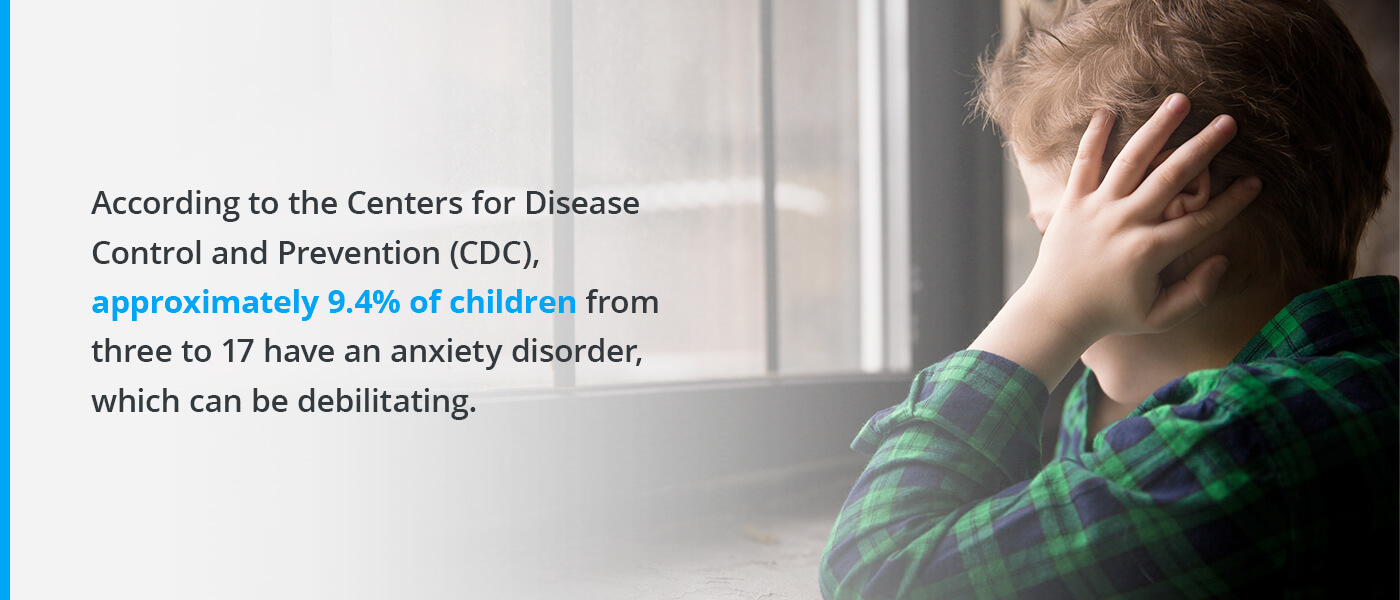All children have emotional ups and downs. Whether it’s periods of moodiness, trouble with friends or dips in academic performance, kids tend to struggle with aspects of life from time to time. But when depressive or anxious symptoms persist and impact their day-to-day life, it might be time to see a therapist. Therapists can help your child recognize and process their thoughts and feelings, so they can start to feel happier and healthier.
Here’s how to know if your child needs therapy and how to prepare them to get the most out of counseling.
8 Signs Your Child May Benefit From Therapy
Some struggles are common in the early stages of life, making it challenging to know if your kid needs therapy. Watch for warning signs that your child requires additional help. It’s also crucial to trust your gut — you know your child best, and if something doesn’t feel right, trust that instinct.
Here are eight signs to help you determine if your child needs therapy:
1. Problems in Multiple Areas of Life
Therapy might be right for your child if they experience struggles in multiple areas of life, such as family relationships, friendships or academic performance. For example, they may not recognize how their behavior affects the people around them, resulting in relationship strain. They might withdraw from friends or display sudden mood swings that disrupt their functioning.
At the same time, they may show a decline in their school performance. If your child generally does well in school and suddenly starts to get bad grades or fail classes, take note. It could signify a deeper emotional problem or something else impacting their focus and motivation.
2. Loss of Interest in Hobbies
Similar to a shift in behavior or declined academic performance, changes in your child’s interests and hobbies can also signal a need for therapy. Take note if they start to lose interest in activities that once sparked joy. A healthy, happy child will typically enjoy various hobbies. If your child suddenly begins to distance themselves from these activities, it could be a warning sign they are struggling with mental health.
They may feel less motivated to keep up with their favorite activities or sports, for instance, or favor isolating themselves in their room rather than keeping up with their interests. Consider contacting a mental health professional if the change lasts longer than two weeks. They can often let you know if emotional stressors are the cause.
3. Excessive Worrying
Excessive worrying and anxiety that interfere with everyday activities like school or social events are common signs your child needs therapy. While some worrying or sadness can be common among children during life transitions, when the emotions become excessive and start consuming your child’s thoughts, it’s time to take a closer look. This type of worry could be a sign of an anxiety disorder.
According to the Centers for Disease Control and Prevention (CDC), approximately 9.4% of children from three to 17 have an anxiety disorder, which can be debilitating. In therapy, professionals can help your child manage their anxiety healthily so they can be happier, more comfortable and successful in their daily lives.
4. Low Self-Esteem
It’s common to struggle with self-esteem issues occasionally, but if you notice your child talking down on themselves frequently, it could be a sign of a deeper problem. They might suddenly feel bad about themselves and appear less confident or worried about their abilities, which can be destructive. Professionals can address negative self-talk in therapy and help your child shift toward more positive thought patterns to improve their confidence.
5. Defiant and Self-Destructive Behaviors
Common signs your child needs therapy are defiant or self-destructive behaviors inside and outside the home. You might notice your child is more inclined to argue or become defensive, even over a minor request or conversation. They might suddenly get into fights at school or throw more temper tantrums. Pay attention to these behaviors, especially if they occur more frequently. Often it’s a sign your child is asking for help without them even realizing it.
At the same time, take note of any self-destructive behaviors like hair-pulling or skin-picking, which could signal a more profound emotional issue.
6. Social Withdrawal
Another huge sign of emotional issues is social withdrawal. Your child might withdraw from social situations or turn inwards in sadness or anxiety. Therapy might be right for your child if the withdrawal takes away from their relationships. This is especially true if introversion and shyness are not common traits for your child. Social withdrawal signs can include eating lunch alone, avoiding playdates or lacking the desire to leave the house.
7. Significant Changes in Sleep Habits or Appetite
Children tend to sleep and wake up early and may require afternoon naps to function better. Ultimately, they follow a sleeping pattern. When this pattern becomes irregular, it might mean something more serious. Nightmares are also a sign that something is wrong. Frustration or sadness can often manifest through nightmares, making it crucial to take them seriously.
At the same time, a sudden shift in appetite could signal that it’s time to see a therapist. When your child shows little to no interest in eating or suddenly begins to binge, it could mean an emotional problem that needs to be addressed by a professional.
8. Troubling Comments
Most urgently, if your child reveals feelings or ideas about self-harm, it’s crucial to seek help immediately. Sometimes, suicidal ideation will present through troubling comments like “I wish I weren’t here” or “Nobody would care if I disappeared.” However, signs can be more subtle, such as hinting at feelings of loneliness or hopelessness.
For younger children, feelings of self-harm can present differently, such as hitting oneself or digging nails into the skin. Take note of these behaviors and get help for your child right away.
How to Prepare Your Child for Therapy
Treating a child’s mental health problems or any other troubling behaviors as soon as possible is crucial. That way, they can reduce issues at home, school and when it comes to forming friendships. Therapy can also lead to healthy development into adulthood.
If your kid needs therapy, here’s how you can prepare them so they get the most out of these professional sessions:
- Be optimistic about therapy: When discussing therapy with your child, outline ways it might help them feel better. The goal is to get them to view therapy as a way to get the support they need rather than them viewing themselves negatively.
- Don’t surprise them: Remember to talk to your kid about therapy before going. That way, they aren’t surprised when they arrive at their appointment, which might make them feel less trusting of you and puts them and the therapist in a difficult spot from the start.
- Meet with the therapist beforehand: It’s also helpful to meet with your child’s therapist before so you know what to expect and how to discuss sessions with your child.
Contact MV Psych for Support in Andover, MA
The sooner you pinpoint the signs your child needs therapy, the sooner you can get them the help they need. At Merrimack Valley Psychological Associates, we provide various forms of counseling and treatment for children and adults. Through services like anxiety therapy, play therapy, grief and loss management and others, we can help your child overcome the challenges of everyday life. Our mental health services are individualized to target your child’s specific needs.
No matter your child’s age or situation, we can connect them with the right therapist and compassionate treatment approach. To schedule an appointment, contact us today.



